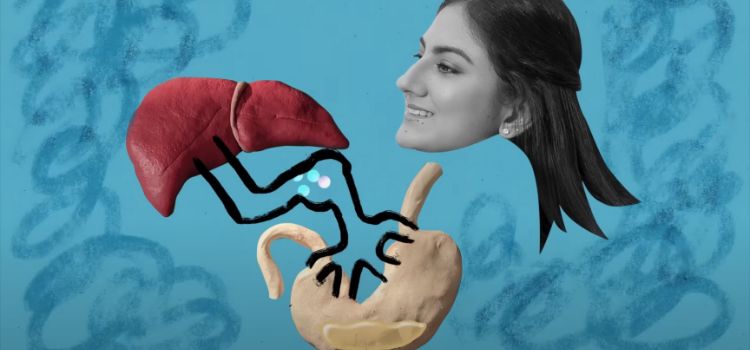
It is not recommended to do a parasite cleanse while breastfeeding, as it may affect the baby’s health. A healthy lifestyle with proper nutrition is usually enough to naturally detox the body.
The Safety Of Mebendazole For Lactating Women During A Parasite Cleanse
The use of mebendazole for lactating women during a parasite cleanse is generally considered safe and commonly used for the treatment of parasitic infections. However, it’s important to consult with a healthcare professional to ensure the safety of the baby’s health.
Mebendazole And Its Common Use In Treating Parasitic Infections
Mebendazole is a commonly prescribed medication for the treatment of various parasitic infections. It belongs to a group of drugs called anthelmintics, which are specifically designed to eliminate parasitic worms from the body.
Mebendazole works by disrupting the parasites’ ability to absorb nutrients, eventually leading to their death. This medication is highly effective against various types of worms, such as pinworms, roundworms, and hookworms.
Mebendazole is available in tablet form and is generally taken orally with or without food. It is important to follow the prescribed dosage and complete the full course of treatment for optimal results.
Safety Considerations For Breastfeeding Mothers
Breastfeeding mothers may have concerns about undergoing a parasite cleanse while nursing their babies. It is essential to prioritize both the mother’s health and the baby’s well-being when considering any dietary or medication changes.
Before initiating a parasite cleanse or taking any medication, it is crucial for breastfeeding mothers to consult with their healthcare provider. The healthcare provider can evaluate the specific circumstances and provide guidance on the safety of the cleanse and any potential risks associated with the medication.
Evidence Of The Safety Of Mebendazole Use During Lactation
While limited data is available on the safety of Mebendazole use during lactation, several case studies have reported its use in breastfeeding mothers without any adverse effects on the infants. A case series report published in a medical journal documented 16 lactating women who were given Mebendazole for the treatment of worm infestations.
The study found no adverse effects on the infants, and in some cases, breastfeeding continued without interruption during the treatment period. Another study published in a renowned medical journal analyzed the concentration of Mebendazole in breast milk and found no significant transfer to the infants.
These studies suggest that Mebendazole use during breastfeeding is generally considered safe when prescribed by a healthcare professional. While there is limited data available, the use of Mebendazole for parasitic infections in breastfeeding mothers has not shown any significant adverse effects on infants.
It is crucial for breastfeeding mothers to consult with their healthcare provider to assess the specific situation and receive appropriate guidance.
The Risks Of Detox Diets And Supplements For Breastfeeding Mothers

It is not recommended for breastfeeding mothers to do a parasite cleanse while breastfeeding, as it may directly affect the health of the baby. Instead, focus on maintaining a healthy lifestyle with good nutrition, fluid intake, and fiber intake to naturally detox the body.
Understanding Detox Diets And Their Purpose
Detox diets have gained popularity for their supposed ability to cleanse the body of toxins and promote overall health and well-being. However, it is important to understand that detox diets come in various forms, including juice fasts, herbal supplements, and restrictive eating patterns.
These diets often claim to remove harmful substances from the body, improve digestion, and boost energy levels. While some people may find benefits from detoxing, it is essential to consider the potential risks, especially for breastfeeding mothers.
Potential Risks Of Detoxing While Breastfeeding
- Limited nutrient intake: Detox diets often restrict food groups, leading to a potential deficiency in essential nutrients like carbohydrates, proteins, and fats. Breastfeeding mothers require an adequate nutrient intake to support their own health and produce quality breast milk for their baby.
- Decreased milk supply: Caloric restriction or sudden changes in diet can impact milk supply. Breastfeeding mothers need to consume enough calories and nutrients to maintain an adequate milk supply for their growing baby.
- Transfer of toxins: Some detox regimens involve the use of herbal supplements or cleansing agents that may not be safe for breastfeeding. These substances can potentially pass through breast milk and affect the baby’s health or development.
- Detox symptoms: The body’s detoxification process may release toxins into the bloodstream, resulting in possible side effects like headaches, fatigue, and digestive disturbances. These symptoms can be challenging to manage while caring for a newborn.
- Hormonal imbalance: Detox diets can disrupt the delicate hormonal balance in breastfeeding mothers, which may impact milk production and overall well-being.
The Importance Of A Healthy Lifestyle And Natural Detox Methods
Rather than resorting to detox diets or supplements, breastfeeding mothers can prioritize a healthy lifestyle and embrace natural detoxification methods. By following these practices, they can support their own health and well-being while providing optimal nutrition for their baby.
- Consume a balanced diet: Focus on whole, nutrient-dense foods like fruits, vegetables, lean proteins, whole grains, and healthy fats. This provides essential nutrients for both mother and baby.
- Stay hydrated: Drinking enough water helps flush out toxins and supports overall bodily functions. Aim for at least eight glasses of water per day.
- Engage in regular physical activity: Exercise promotes circulation, enhances detoxification, and boosts mood and energy levels. Choose activities that you enjoy and are safe to do while breastfeeding.
- Prioritize sleep and stress management: Sufficient rest and stress reduction are crucial for the body’s natural detoxification processes. Aim for seven to eight hours of quality sleep each night, and practice relaxation techniques like deep breathing or meditation.
- Minimize exposure to toxins: Be mindful of environmental toxins such as chemicals in cleaning products, pesticides, and heavy metals. Opt for natural alternatives whenever possible.
Breastfeeding mothers should always consult with their healthcare provider before considering any detox diets or supplements. They can discuss the potential risks and benefits and determine the best course of action that supports their individual needs and their baby’s health.
A Nutritious Diet To Support Natural Parasite Cleansing While Breastfeeding

While breastfeeding, it is important to prioritize the health of both the mother and the baby. It is generally recommended to consult with a healthcare professional before embarking on a parasite cleanse, as certain cleanses may not be suitable during this period.
A nutritious diet, rich in natural, whole foods, can support natural parasite cleansing and promote overall well-being.
Importance Of A Balanced Diet For Breastfeeding Mothers
- Breastfeeding mothers require a balanced diet to ensure they are providing sufficient nutrients to their baby.
- A healthy diet supports the overall health and well-being of both mother and child.
- Eating a variety of nutritious foods helps maintain energy levels and promotes the production of breast milk.
- A balanced diet can also enhance the body’s natural cleansing processes and support the elimination of parasites.
Foods To Include And Avoid During A Parasite Cleanse
Include foods that are rich in nutrients and support the body’s natural cleansing abilities:
- Garlic: Garlic has antimicrobial properties that may help eliminate parasites.
- Pumpkin seeds: Pumpkin seeds are a good source of magnesium, zinc, and fatty acids, which may help expel parasites.
- Turmeric: Turmeric has anti-inflammatory properties that can support the body’s natural detoxification processes.
- Papaya: Papaya contains an enzyme called papain, which may aid in the breakdown of parasites.
- Pineapple: Pineapple contains an enzyme called bromelain, which may help combat parasites.
- Thyme: Thyme has antiparasitic properties and can be used in cooking or as a herbal tea.
Avoid foods that may weaken the immune system or contribute to inflammation:
- Processed foods: Processed foods often contain additives and preservatives, which can burden the body’s detoxification processes.
- Refined sugars: High sugar intake can suppress the immune system and promote inflammation.
- Alcohol: Alcohol consumption can impair liver function and weaken the immune system.
- Caffeine: Excessive caffeine intake can dehydrate the body and hinder its natural detoxification processes.
Incorporating Anti-Inflammatory Herbs And Spices For Natural Cleansing
- Turmeric: Turmeric contains curcumin, a compound with potent anti-inflammatory effects that may support the body’s natural cleansing processes.
- Ginger: Ginger has anti-inflammatory properties and may aid in digestion and detoxification.
- Cinnamon: Cinnamon has been shown to have antimicrobial properties and may help combat harmful parasites.
- Cayenne pepper: Cayenne pepper can boost metabolism and circulation, supporting the body’s natural detoxification processes.
- Cloves: Cloves have antiparasitic properties and can be used in cooking or as a herbal tea.
Parasitic Infections In Breastfed Babies

Parasitic infections in infants can be a concerning issue for breastfeeding mothers. It’s important to understand the common types of parasitic infections that can affect breastfed babies, how they can contract parasites, and the preventative measures that breastfeeding mothers can take to minimize the risk.
Common Types Of Parasitic Infections In Infants
- Giardiasis: This is a common parasitic infection caused by the Giardia lamblia parasite. It can lead to diarrhea, abdominal pain, and nausea in infants.
- Cryptosporidiosis: Cryptosporidium is a parasite that can cause watery diarrhea and stomach cramps in babies when ingested.
- Pediculosis: This refers to a lice infestation, which can cause itching and discomfort for newborns.
How Babies Can Contract Parasites
- Contact with contaminated water: Babies can contract parasitic infections through contact with contaminated water sources, such as swimming pools, tubs, or improperly sanitized bottles.
- Ingesting contaminated food: Parasites can also be ingested by infants through contaminated food, especially if the food is not properly cooked or prepared.
- Close contact with infected individuals: Babies can contract parasitic infections by being in close contact with individuals who have the infection, such as caretakers or family members.
Preventative Measures For Breastfeeding Mothers
Breastfeeding mothers should ensure that they maintain proper hygiene practices, such as washing their hands before breastfeeding, sterilizing bottles and pump parts, and regularly cleaning and sanitizing the baby’s toys and pacifiers.
Breastfeeding mothers can invest in water filters or purifiers to ensure that the water they use for bottle preparation or cleaning is free from parasites. It’s essential for breastfeeding mothers to thoroughly cook and prepare foods properly to minimize the risk of parasitic infections.
Breastfeeding mothers should wash and sterilize breastfeeding accessories, such as breast pumps and bottles, to prevent contamination.
By understanding the common types of parasitic infections in infants, how babies can contract parasites, and implementing preventative measures, breastfeeding mothers can minimize the risk of parasitic infections in their babies while continuing to breastfeed.
Frequently Asked Questions
Can I Get Rid Of Parasites While Breastfeeding?
Yes, you can get rid of parasites while breastfeeding. Mebendazole is commonly used for treating parasitic infections in lactating women and is considered safe. However, it is recommended to consult with a healthcare professional before starting any cleanse while breastfeeding.
Is It Ok To Do A Cleanse While Breastfeeding?
It is not recommended to do a cleanse while breastfeeding as it may directly affect the baby’s health. It is best to focus on a healthy lifestyle with good nutrition, adequate fluid intake, and fiber to naturally detox the body.
What Should You Avoid During Parasite Cleanse?
During a parasite cleanse, you should avoid greasy and processed foods. It’s recommended to eat natural, whole foods and avoid specific types of foods like gluten, dairy, or pork. It’s also beneficial to incorporate anti-inflammatory herbs and spices such as garlic, turmeric, and ginger.
Can A Breastfed Baby Get Parasites?
Breastfed babies can get parasites, but most infections won’t affect breastfeeding if the mother has good health and nutrition.
Wrapping Up
When it comes to breastfeeding mothers, the safety and impact of a parasite cleanse on the baby’s health must be carefully considered. While there is limited research on the effects of parasite cleanses specifically on breastfeeding mothers, some studies suggest that certain medications used in parasite cleanses, such as mebendazole, may be safe to use during lactation.
It is important to consult with a healthcare professional before starting any cleanse to ensure it is safe for both you and your baby. Additionally, it is worth noting that a healthy diet and lifestyle, with good nutrition and hydration, can naturally support your body’s detoxification processes.
Avoiding processed and greasy foods, and incorporating anti-inflammatory herbs and spices like garlic and turmeric, can help promote overall health and potentially reduce the risk of parasitic infections.
Ultimately, the decision to do a parasite cleanse while breastfeeding should be made in consultation with your healthcare provider, taking into consideration your specific situation.
Your health and the well-being of your baby should always be the top priority.
Leave a Reply